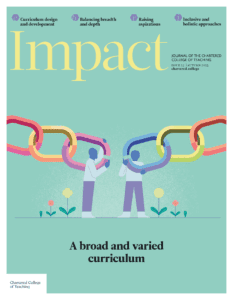TAREK EL BABA, DAR AL FIKR SCHOOLS, SAUDI ARABIA
Introduction
Inclusive education requires more than legal compliance; it demands a commitment to equity, dignity and the universal right to meaningful learning (UNESCO, 1994). Universal Design for Learning (UDL) has emerged as a powerful framework that promotes inclusivity by proactively designing curricula to meet diverse learner needs (CAST, 2018). Unlike traditional approaches that retrofit accommodations after barriers arise, UDL anticipates learner variability, offering multiple pathways for engagement, representation and expression (Meyer et al., 2014). This reflection discusses how UDL principles translate into practical classroom strategies, highlighting how they empower students, support diverse learners and enhance learning outcomes. It aims to provide teachers with actionable insights rooted in both research and lived experience.
Why UDL is an inclusive curriculum design tool
Research demonstrates that UDL enhances incl
Join us or sign in now to view the rest of this page
You're viewing this site as a guest, which only allows you to view a limited amount of content.
To view this page and get access to all our resources, join the Chartered College of Teaching (it's free for trainee teachers and half price for ECTs) or log in if you're already a member.











